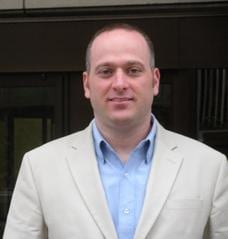After seven years of delays, the trial against a Toronto gay man who dodged questions on a Canadian Blood Services questionnaire in order to give blood began this week.
Kyle Freeman, 36, is challenging the Canadian Blood Services’ (CBS) ban on gay blood donors, which has been in effect since 1983. He admits he lied on CBS’s pre-screening questionnaires, but says he did so because the rules don’t make sense. Canadian law forbids gay men from donating blood unless they have not had sex with a man since 1977.
Queer groups have long argued that the ban does not reflect accepted scientific knowledge or common sense. They argue that only unprotected anal sex should disqualify gay men who want to donate blood and that any prohibition based on oral sex amounts to spreading misinformation about what is considered to be high-risk activity. For years, university students have led the battle to repeal the ban, since blood drives are a frequent sight on campus.
Freeman donated blood 18 times between 1990 and 1999, but the lawsuit focusses on four donations between 1998 and 2002. In 2002, Freeman wrote an anonymous email to CBS and Canadian media after his donation:
“I am a gay man and have been involved in a long-term committed relationship,” the email says. “Both my partner and myself [have] been tested for the HIV virus and are both negative and intend to stay that way. We are both very honest people and are both blood donors.”
Investigators for CBS tracked Freeman through his IP address and filed its claim. Their claim asks for $100,000 in damages, accusing Freeman of being negligent while filling out the screening form. Freeman’s countersuit clocks in at $250,000.
In an exclusive interview with Xtra, Freeman says he now regrets the inflammatory nature of the email he sent to CBS and the media. He also says he regrets sending the email from his home computer, saying he should have emailed CBS from a library where his IP address could not be tracked. However, he does not regret donating blood.
“When people came to my door to serve me with a subpoena, they didn’t know who to ask for. It was originally John Doe v Canadian Blood Services. A friend told me I should’ve lied and says someone hacked into my internet account, but I wasn’t going to lie. I wasn’t going to hide,” says Freeman.
He’s not the ‘selfish radical’ he’s made out to be
Read Marcus McCann’s full opinion piece
“I think it’s less about what you do [than] how you do it. You can have just one sex partner and get HIV. Or you can have multiple partners and be safe,” says Freeman.
So far, media coverage of the case has been largely critical of Freeman’s position. At the start of the trial, The National Post ran an extended editorial that called the case an example of “self-indulgent identity politics.” Freeman often answers questions from hostile mainstream reporters outside the Ottawa courtroom.
During the proceedings, Freeman spoke about coming out of the closet to his family in his late teens.
“My father told me I should try being straight because the life of being a gay man is very tough,” says Freeman.
Freeman characterizes himself as vigilant and careful when it comes to matters of his sexual health. He testified he considered himself to be a “hypochondriac,” going to hassle-free clinics so many times he was asked to come less often.
“The rationale given to me for not getting tested so many times was the actual cost of the tests,” says Freeman.
During that time, the Canadian Red Cross — CBS’s predecessor — found Freeman’s blood to be infected with a non-contagious strain of late latent syphilis. He also says he had once contracted gonorrhea. Both syphilis and gonorrhea can be spread easily through oral sex, unlike HIV.
Freeman says he once donated blood and, afterward, called CBS to confirm that he was HIV-negative. Contrary to mainstream media reports, Freeman says he never used CBS as a way to test his blood.
“I never used Blood Services as a vehicle to test my blood for STIs,” says Freeman.
Freeman went on to say that he has donated blood so many times because his father was also a blood donor, and he believed that donating blood was act of patriotism and the “ultimate gift you could give someone”. But, he says, the CBS questionnaires made him feel “nauseous” —due to the questions about having sex with other men.
“[When answering the blood donation questionnaires], my stomach would turn. I’d be embarrassed, ashamed. I felt like a criminal. It felt like I was doing something bad, even though I was trying to help people. I knew my blood was pure, but I just felt guilty,” he says.
The Freeman case is likely to continue until early next year.

 Why you can trust Xtra
Why you can trust Xtra


